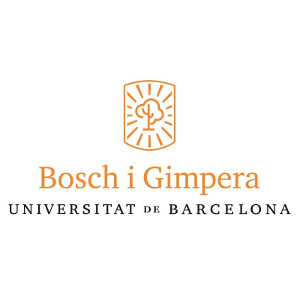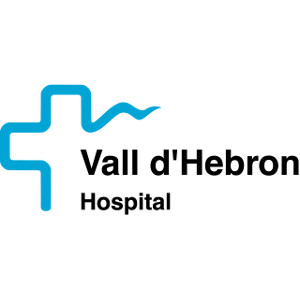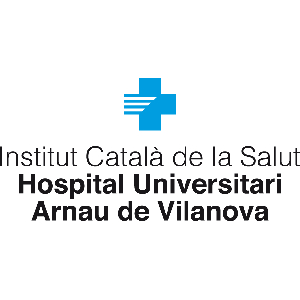-
 CEREMET offersscientific services and consultancy addressed to biomedicine and health companies
CEREMET offersscientific services and consultancy addressed to biomedicine and health companies -
 CEREMET locationis at the Faculty of Biology of the University of Barcelona
CEREMET locationis at the Faculty of Biology of the University of Barcelona -
 CEREMET supportscompanies to develop their projects and provides added value to their products
CEREMET supportscompanies to develop their projects and provides added value to their products -
 CEREMET activityis developed under ISO 9001:2015 certification and GLP compliance
CEREMET activityis developed under ISO 9001:2015 certification and GLP compliance
Services
CEREMET is an academic CRO for biomedicine and healthcare companies offering quality customer-focused services in compliance with the ISO 9001:2015 certificate and the Good Laboratory Principles (see our Quality Policy).
Our services range from scientific consultancy to the execution of studies, including animal models and biomolecule analyses during product development.
In vivo services include non-clinical studies of test substance and specimen
drawing under GLP compliance.
The cornerstone of CEREMET’s activity is our flexibility, which allows us to adapt to each client’s workflow requirements and achieve highly satisfied customers.
Since 2025 CEREMET is member of the TECNIO label driven by the ACCIO agency from Generalitat de Catalunya to promote tech transfer activities.
SECTORS

Pharma and Biomed
Pharma and Biomed services include in vitro MTT studies, in vivo studies for Proof of Concept, PK, PD, biodistribution, local tolerance, biochemical product profile, metabolic effects of drug administration and collaboration in clinical trials.

Food and Nutrition
Food and Nutrition services include in vivo studies on diets and metabolism, food supplement studies, prebiotics administration and their effects on microbioma and health, also biochemical profile and nutritional properties of foods.

Cosmetics
Services in Cosmetics include studies in vitro, analisys of biological samples, growth factors profile, effect of cryolipolysis in isolated adipocytes, liposome lipid composition charactetization and biochemical analysis.
We are a highly qualified team of biology and biochemistry PhDs and graduates with an extensive background in academic research going back more than 35 years in the fields of biochemistry, physiology and metabolism.
CEREMET offers scientific and technical consultancy in the areas of expertise related to our research activities.

Metabolism
The research activity of the group has been focused on metabolism from its beginnings with special interest on its regulation.
Metabolism
Lipid metabolism and its regulation is an area of special interest to the group and the focus of much of our research activity. Metabolism is studied from a physiological integration perspective, relating metabolic parameters to physiological function.
We have studied metabolism in different in vivo rodent models by reproducing different physiological situations and pathological alterations. We have also developed our own in vivo models when needed.
In addition, we have worked with in vitro models such as tissue perfusion and isolated cell incubation to study the effect of hormones and other effectors by modelling metabolic responses.
We have also studied metabolic changes, enzyme activities and gene expression profiles by means of molecular biology and proteomic methodologies.

Physiology
Physiology and its understanding are central players in our research projects.
Physiology
We study the role of the different tissues involved in whole-body metabolic response in animal models. Using in vivo models, we have examined how tissue functions interact under the same modulators.
Thus, the metabolic implications of differential tissue regulation in different physiological and pathological situations (different diets, fasting, physiological stress, hepatic regeneration, cold exposure, pregnancy and others) have been one of the objectives of the group’s research.
These types of studies are undertaken by means of developing, adapting and applying a battery of different methodologies including in vivo administration of substances, surgical methods, tissue perfusion or histology.

Biomedicine
The development of clinical research in collaboration with hospitals allows us to have access to patients samples for a more translational research.
Biomedicine
Our research is focused on obesity and its treatment with bariatric surgery. Obese patients are affected by a variety of comorbidities associated with adiposity such as diabetes, dyslipidaemia, hypertension, atheromatosis, cardiovascular risk and MASLD.
We have studied the clinical evolution of individuals that have undergone surgery, their metabolic and inflammatory profiles, and the post-surgery remission of their comorbidities.
Related with obesity, another area of interest is the crosstalk between liver, mesenteric white adipose tissue and gut, and its implication in the development of pathologies as MASLD.
We have also applied our expertise in in vivo models to gain a more comprehensive understanding of the molecular pathways involved in obesity and its comorbidities.
A second field of interest is the role of apolipoproteins and lipid metabolism in cancer, specially in cancer occurrance and progression.
We are studying the behaviour of diferent apolipoproteins in patients of diferent cancers and their long term progession related with the treatment.
PARTNERS
In order to expand the variety of services that we offer and to meet a wider range of requirements from our clients, we have established strategic alliances with expert partners in the following areas:

Oncology
CEREMET offers in vitro studies in oncology in collaboration with the Badalona-Applied Research Group in Oncology (Catalan Institute of Oncology and the Germans Trias i Pujol Research Institute)
Oncology
CEREMET offers functional in vitro studies for screening and determining the efficacy of existing drugs and new active compounds in the field of oncology in collaboration with the Badalona-Applied Research Group in Oncology (B·ARGO) of the Catalan Institute of Oncology (ICO-Badalona) and the Germans Trias i Pujol Research Institute (IGTP).
B·ARGO is a cross-disciplinary organisation conducting translational and clinical research. Their mission is to gain recognition as a research group of excellence that contributes to the application of personalised oncology, focusing on identifying new therapeutic strategies and determining new prognostic and predictive biomarkers emerging from basic research to apply them in clinical practice.
B·ARGO researchers at the IGTP have extensive experience in in vitro functional studies in several tumour cell types including melanoma, glioblastoma, breast, prostate, bladder, lung, colorectal and ovarian cancer. In addition, they are experts in developing drug-resistant in vitro models to study treatment resistance acquisition phenomena in tumours.
Moreover, the oncologists from B·ARGO and the Oncology Service of ICO-Badalona have extensive experience in a wide variety of clinical trials. They offer the opportunity to test the safety, side effects, optimal dose, and timing of the compounds being studied under the supervision of the oncologists in their Phase I Clinical Trials Unit.

Inflammatory Bowel Desease
CEREMET offers in vivo and in vitro studies related to the IBD area in collaboration with the Inflammatory Intestinal Disease Research Group (Germans Trias i Pujol Research Institute)
Inflammatory Bowel Desease
CEREMET offers in vivo studies to test the efficacy of drugs for ulcerative colitis and Crohn’s disease in animal models. These studies are conducted in collaboration with the Inflammatory Intestinal Disease Group of the Institut Germans Trias i Pujol (IGTP).
The Inflammatory Intestinal Disease Group is a multidisciplinary group that focuses its efforts on both clinical practice and research. The group has conducted cutting-edge research for more than 25 years, which has allowed it to reach a high level of excellence in intestinal healthcare and has set a national and international benchmark for the treatment of ulcerative colitis and Crohn’s disease.
They have great expertise in developing refined and reductionist in vivo models, and in describing all the inflammatory and reparative stages at the clinical and molecular level of these severe inflammatory bowel diseases. In addition, the study of intestinal diseases is complemented by in vitro assays, as well as by computational methods based on systems biology.

Microbiome
CEREMET offers in vivo studies to examine changes in microbiota dynamics in collaboration with experts in this field from the Faculty of Biology of the University of Barcelona
Microbiome
The gut microbiome can be altered by different factors such as pathologies, food and nutrition or drugs. CEREMET offers in vivo studies to analyse changes in the composition of the microbial community, microbial dynamics and metabolism after the administration of prebiotics or drugs, or due to the effects of a specific pathology (obesity, diabetes, etc.). These studies are performed in collaboration with the microbiology experts of the Department of Genetics, Microbiology and Statistics of the University of Barcelona’s Faculty of Biology, who offer extensive experience in high throughput sequencing technologies and qPCR.
The true importance of the microbiome lies in its functionality, and there are many metabolic pathways with different end products which interact directly with hosts. In the case of the intestinal microbiome, an example of these end products that can be found in hosts are short-chain fatty acids (SCFA), which are produced after the metabolism of prebiotics and have been reported to have beneficial health effects. To complement the microbiota studies, CEREMET offers SCFA quantification in collaboration with a gas chromatography-mass spectrometry expert from the Biochemistry and Molecular Biomedicine Department of the UB’s Faculty of Biology.
CEREMET is an academic CRO that belongs to an academic research group of the health and bioscience research environment of the University of Barcelona.
SCIENTIFIC NETWORK
CEREMET and the Research Group work with other services and knowledge generators from our scientific network to carry out both academic and commissioned research projects.
Visit us
Department of Biochemistry and Molecular Biomedicine
Faculty of Biology
Edifici Prevosti, Floor -2
Diagonal 643
08028 Barcelona
Spain
Call us
+34 93 402 15 48
Contact us
ceremet@ub.edu














